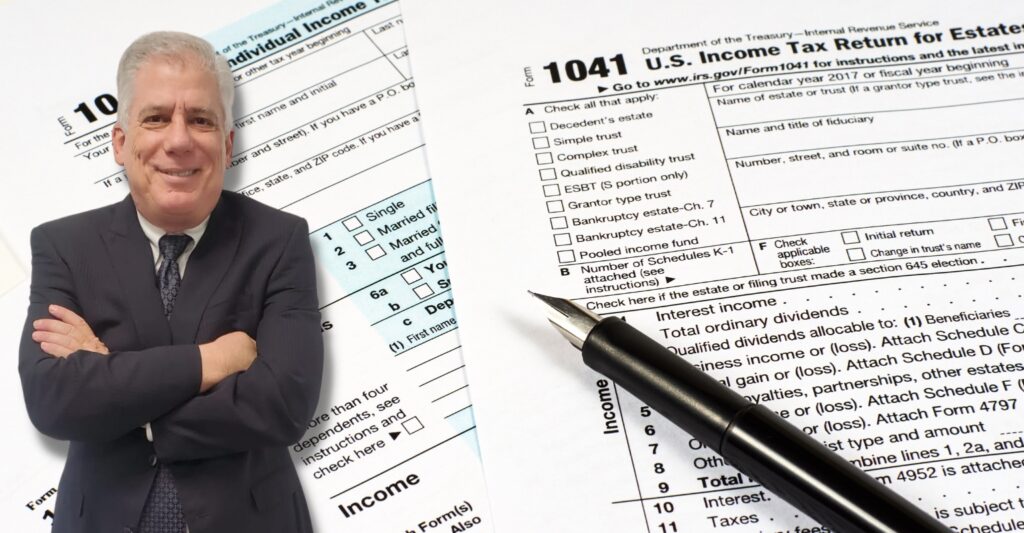Timing Your Miami Bankruptcy Filing: Before or After Your Tax Return?
If you’re struggling to pay off your debts and you live in Miami, filing for bankruptcy might be one solution to consider. However, if you’re also preparing to file your tax return, you may be wondering whether it’s better to file for bankruptcy before or after filing your taxes. In this article, we’ll explore this question in depth and provide you with the information you need to make an informed decision.
What is Bankruptcy?
Bankruptcy is a legal process that can help individuals and businesses who are struggling to pay off their debts. The two most common types of bankruptcy for individuals are Chapter 7 and Chapter 13 bankruptcy.
Chapter 7 bankruptcy is also known as “liquidation” bankruptcy. In a Chapter 7 bankruptcy, a trustee is appointed to sell your non-exempt assets and use the proceeds to pay off your debts. However, many assets are exempt from being sold, such as your primary residence, personal property, and retirement accounts.
Chapter 13 bankruptcy is also known as “reorganization” bankruptcy. In a Chapter 13 bankruptcy, you create a plan to repay your debts over a period of three to five years. This plan is approved by the bankruptcy court and your creditors, and you make payments to a trustee who distributes the funds to your creditors.
Filing for Bankruptcy Before Filing Your Tax Return
One of the main advantages of filing for bankruptcy before filing your tax return is that you can discharge your tax debt in a Chapter 7 bankruptcy. However, there are certain conditions that must be met in order to do so.
To be eligible to discharge your tax debt in a Chapter 7 bankruptcy, the following conditions must be met:
-
The tax debt must be income tax debt.
-
The tax return must have been due at least three years before you filed for bankruptcy.
-
The tax return must have been filed at least two years before you filed for bankruptcy.
-
The tax assessment must have been made at least 240 days before you filed for bankruptcy.
If these conditions are met, you may be able to discharge your tax debt in a Chapter 7 bankruptcy. However, if you file for bankruptcy before filing your tax return, you won’t know the exact amount of your tax debt until after you file your return. This means that you may need to file an amended bankruptcy petition to include the correct amount of your tax debt.
Filing for Bankruptcy After Filing Your Tax Return
If you file for bankruptcy after filing your tax return, you’ll know the exact amount of your tax debt, which can make it easier to include it in your bankruptcy filing. However, you won’t be able to discharge your tax debt in a Chapter 7 bankruptcy if it was incurred in the same year that you file for bankruptcy.
If you’re filing for Chapter 13 bankruptcy, you can include your tax debt in your repayment plan, even if it was incurred in the same year that you file for bankruptcy. This means that you can pay off your tax debt over a period of three to five years, along with your other debts.
Conclusion
In conclusion, the decision of whether to file for bankruptcy before or after filing your tax return depends on your individual circumstances. If you’re eligible to discharge your tax debt in a Chapter 7 bankruptcy and you’re confident that you meet the eligibility requirements, filing for bankruptcy before filing your tax return may be the best option for you. However, if you’re not eligible to discharge your tax debt in a Chapter 7 bankruptcy or you’re filing for Chapter 13 bankruptcy, filing for bankruptcy after filing your tax return may be the better option. In any case, it’s important to consult with a bankruptcy attorney who can help you understand your options and make the best decision for your financial situation.
Expert Guidance for Your Miami Bankruptcy: Why Michael Brooks is the Attorney You Need
If you’re considering filing for bankruptcy in Miami and need professional guidance, you may want to consider hiring an experienced bankruptcy attorney like Michael Brooks. Michael is a bankruptcy attorney in Miami with more than 20 years of experience helping clients navigate the bankruptcy process.
Michael has a deep understanding of the bankruptcy laws in Florida and can help you determine the best course of action based on your individual circumstances. He can guide you through the entire bankruptcy process, from preparing and filing the necessary paperwork to attending court hearings on your behalf.
One of the benefits of working with Michael is that he offers a free initial consultation to potential clients. During this consultation, he can assess your financial situation and provide you with an honest assessment of your options. He can also answer any questions you may have about the bankruptcy process, such as whether you should file for bankruptcy before or after filing your tax return.
Additionally, Michael is known for his compassionate approach to working with clients. He understands that filing for bankruptcy can be a difficult and emotional process, and he strives to make the process as smooth and stress-free as possible for his clients.
If you’re considering filing for bankruptcy in Miami, it’s important to have a knowledgeable and experienced attorney on your side. Michael Brooks is an excellent choice for anyone in this situation, and his expertise can help you achieve a fresh start and financial stability.


